- Homepage
- Our green garden
- Who Will Save the Bees
Who will save the bees?
Who will save the bees is a question every human-being should be asking. It's literally a matter of starvation.
You may have been fortunate enough to view a program on television recently, telling of the most interesting use of beehives to protect and save Kruger National Park’s giant Mopane-trees; elephants destroy them for a variety of reasons and consequently the numbers have dropped alarmingly.
Researchers have started hanging two hives in selected trees and have found that the elephants avoid the bees; their trunks and eyes are particularly vulnerable to any stings.
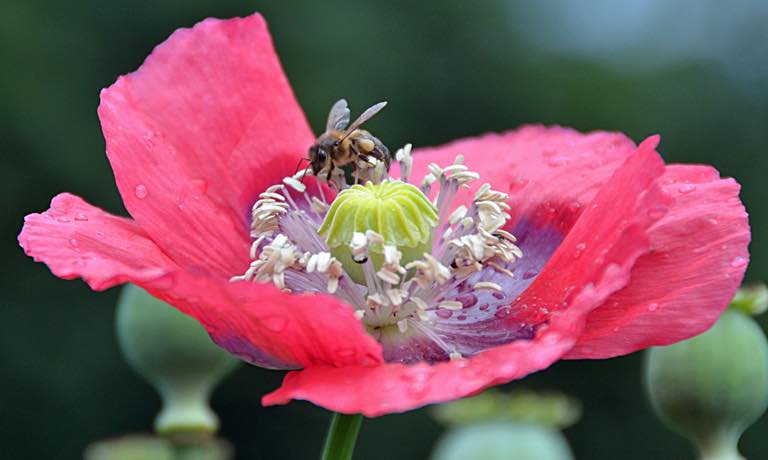
Mopane trees are important for a number of reasons and certainly worth our efforts to save them; but in comparison to the honeybee they really are small beer.
The real value of these fierce insects is not their honey but a service they provide; each hive contains around 50,000 little pollinators that are absolutely vital in the production of one in four mouthfuls that we humans eat.
Albert Einstein once said, if the bee disappeared off the face of the Earth, man would have only four years left to live. An exaggeration perhaps but they are absolutely vital to the pollination of a great many foods grown all over the world; from peaches, plums and sunflowers to pumpkins. Almonds and macadamia-nuts also need them; and another one hundred thousand plants that we take for granted.
The real importance of bees is not honey; it's pollination.
It is crucial for us to understand bees because our fate as humans and theirs are inextricably intertwined.
The immediate effect of the loss of honey bees would be a dramatic decline in food production and hence large-scale shortages that would likely lead to famine.
- Professor Robin Crewe, University of Pretoria
A declining industry
I have written before on the alarming future of honeybees in South Africa. Faced in the Midlands with twin-threats of invasion of our hives by Capensis and theft, many keepers have lost heart. There are few new folk entering the industry, despite the enormous potential rewards.
Those are both financial to the beekeeper and to the farmer looking for pollination of his crops; and for the fiscus trying to stop the haemorrhage of desperately needed Rands being spent on importing second-grade and oft adulterated honey.
Adulteration of honey
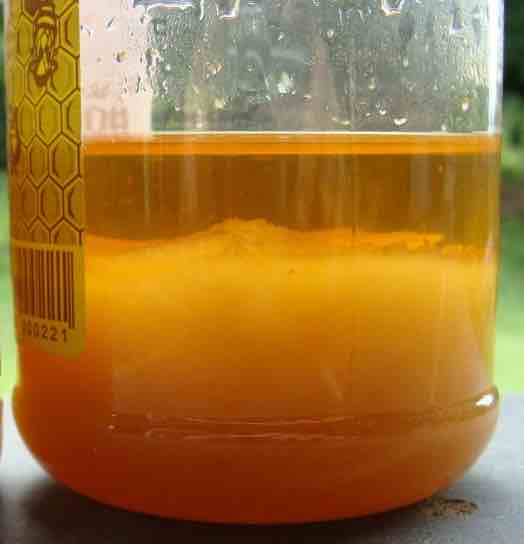
One of the abiding memories of this year’s Witness Garden Show is the number of people who wanted to know if the honey on sale and for display had been mixed with sugar and other contaminants. Two local-bottlers have brought the whole industry in the Midlands into serious disrepute.
In part the problem is pure greed and the dishonesty that now characterises our land; but the other side of the coin is that we beekeepers are simply unable to supply South Africans’ desire for honey.
How to start beekeeping
As beekeeping declines in South Africa, it will mean that more jobs will be lost in agriculture, as farmers get smaller harvests from under-pollination; and the price of food will continue to rise alarmingly as demand increases. Would you like to be part of the solution to this conundrum?
How to start beekeeping is an evergreen favourite page at this site.
Planting a spekboom tree in your garden would help both the planet by reducing carbon-dioxide levels and the bees because of its wonderful flowers.
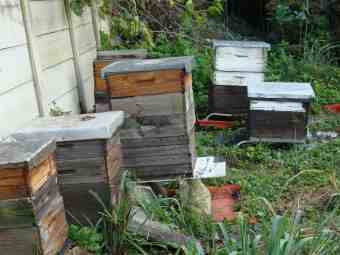
200,000 extra colonies
Mike Allsopp is a senior bee-researcher. He points out that 75 percent of the honey sold in SA is now imported and is of an inferior quality; it amounts to about 3500 tonnes per annum, making a not insignificant R100 million dent in our balance of payments.
These figures give us a measure of the decline of beekeeping in SA; and the loss of potential to agriculture. To produce that amount of honey, we would need about an extra 200,000 colonies, he says.
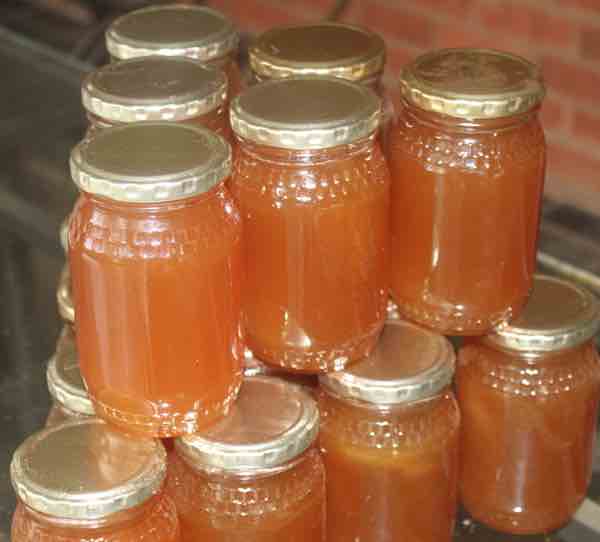 Honey harvested two months after a feral swarm arrived
Honey harvested two months after a feral swarm arrivedWho will save the bees?
Who will save the bees? Their pollination of our food sources is responsible for one in four mouthfuls of what we eat. Hives placed in a sunflower field increase the yield by a third; that's massive.
Another reason for the decline in beekeeping is that honey has come into some disrepute in an increasingly obese world. Understanding simple vs complex carbohydrates explains this dilemma in part.
However one of the mysteries of natural honey that has not been processed and heated by commercial bottlers is that it has a low glycemic index; it even reduces the fasting blood sugar of diabetics.
Interestingly natural honeycomb is one of the very few recognised treatments for fatty-liver disease. The only other solution is total avoidance of all refined carbs; that we should be doing anyway.
Hives can be bought from McGladdery's in Pietermaritzburg[2].
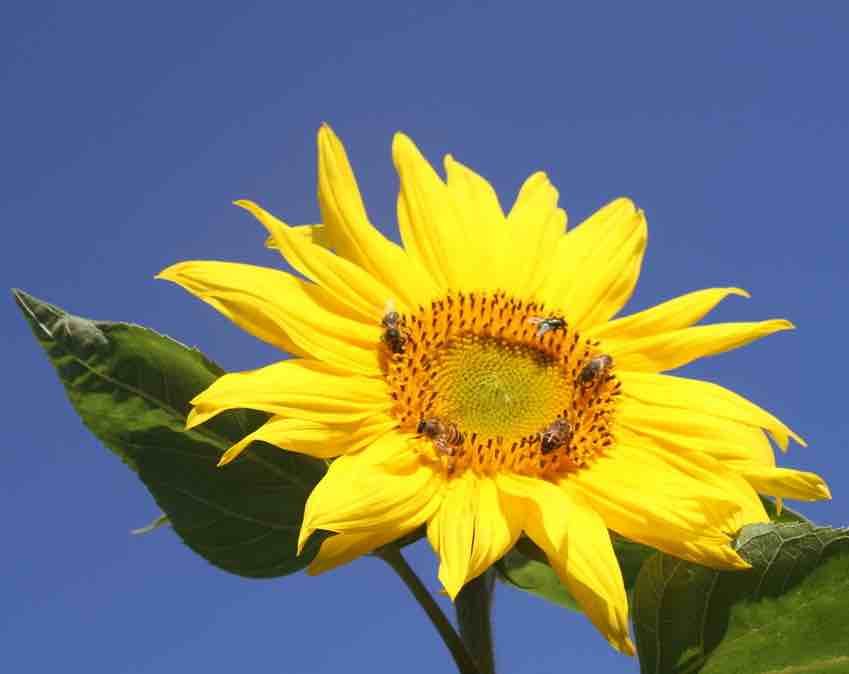
Delayed mowing of lawns and cutting back of indigenous weeds is another option. Could you allow the clover in your grass to flower before sacrificing it? Those who are passionate about saving the bees would be more than willing.
Planting more indigenous trees that produce a mountain of honey is another option.
Would you help by trying to plant indigenous trees for bees?
Plant more herbs and spices
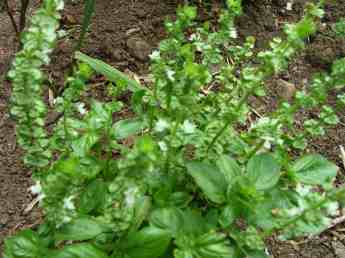 Sweet basil flowers
Sweet basil flowersBees absolutely love the flowers of many herbs and spices. Take Sweet Basil for example; not to be seen these plants are humming. Tiny amounts of important phytonutrients are being carried back to the hive for our own benefit too.
I have long wanted to make my own Dijon mustard; small bottles from the grocery store are getting so expensive and I'm shocked when I read the list of ingredients. The first step was to buy some seed which was dirt-cheap incidentally and grind it into a paste; really simple, with white wine and vinegar.
The next will be in spring when I plant some of the mustard seed and see what I can harvest.
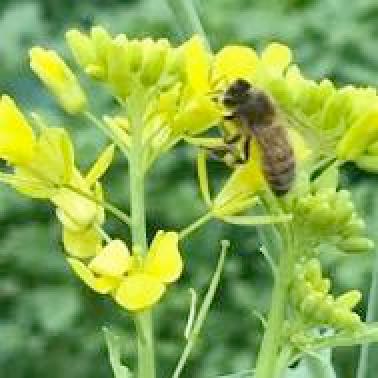
This amount of Dijon mustard cost about five Rand to make; a quarter of one US dollar. Who will save the bees? We will.
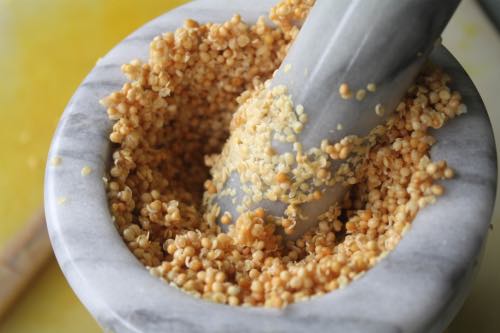
The chief ingredient is two cups of elbow grease!
When browsing use right click and Open Link in New Tab, or you may get a bad gateway signal.
The material expressed on this page is gleaned from the nutritional and environmental literature; it is clearly referenced. A plain distinction is made between the author's opinion and that which is scientifically proven. When in doubt consult your health professional.
To suggest a correction or clarification, write to Dr Bernard Preston here. Contact.
Newsletter
Our newsletter is entitled "create a cyan zone" at your home, preserving both yourself and Mother Earth for future generations; and the family too, of course. We promise not to spam you with daily emails promoting various products. You may get an occasional nudge to buy one of my books.
Here are the back issues.
- Lifestyle and ideal body weight
- What are ultra-processed foods?
- Investing in long-term health
- Diseases from plastic exposure
- Intensive lifestyle management for obesity has limited value
- A world largely devoid of Parkinson's Disease
- The impact of friendly bacteria in the tum on the prevention of cancer
- There's a hole in the bucket
- Everyone is talking about weight loss drugs
- Pull the sweet tooth
- If you suffer from heartburn plant a susu
- Refined maize meal and stunting
- Should agriculture and industry get priority for water and electricity?
- Nature is calling
- Mill your own flour
- Bake your own sourdough bread
- Microplastics from our water
- Alternative types of water storage
- Wear your clothes out
- Comfort foods
- Create a bee-friendly environment
- Go to bed slightly hungry
- Keep bees
- Blue zone folk are religious
- Reduce plastic waste
- Family is important
- What can go in compost?
- Grow broad beans for longevity
- Harvest and store sunshine
- Blue zone exercise
- Harvest and store your rainwater
- Create a cyan zone at your home
Did you find this page interesting? How about forwarding it to a friendly book or food junkie? Better still, a social media tick would help.
- Homepage
- Our green garden
- Who Will Save the Bees
Address:
56 Groenekloof Rd,
Hilton, KZN
South Africa
Website:
https://www.bernard-preston.com